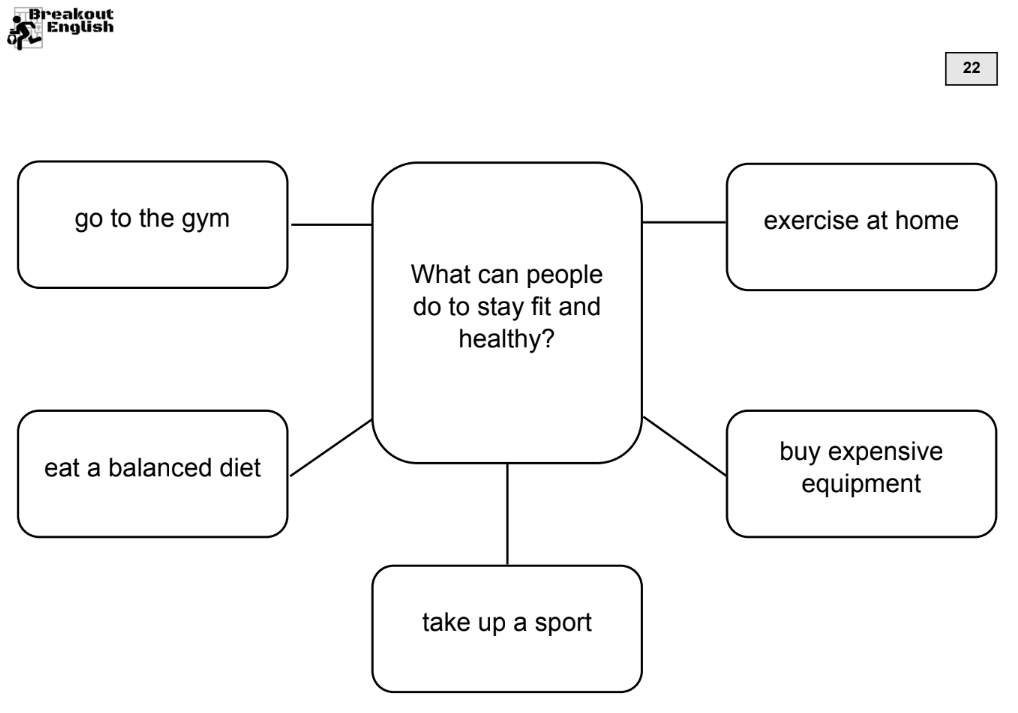In Cambridge First (FCE) Speaking Part 3, useful phrases can be anything that helps you keep the communication going. This is the collaborative task in the exam, where you have to communicate with your partner about a topic that is provided for you by the examiner. The topic includes a question to discuss and several ideas to debate. You’ll need useful phrases for FCE Speaking Part 3 because if you don’t, you’ll risk sounding unnatural, or even worse, you’ll fail to have an interactive exchange with your partner.

Contents
What is First (FCE) Speaking Part 3?
First (FCE) Speaking Part 3, also known as the collaborative task, involves a discussion that is divided into two parts. In the first part, lasting 2 minutes, the examiner will describe a situation to you and your partner, and they will offer you different options to discuss. Remember, it’s not essential that you discuss all the points in the diagram. What’s important is that you discuss them in a communicative way with your partner. See the example below.
In the second part, after the brief discussion, you and your partner will have to make a decision related to the question from the first part of the discussion. It is important to note that the decision-making part of the discussion is not about finding the right answer, but about demonstrating your ability to reach a decision together with your partner, considering different points of view, and expressing your opinions in English.
The collaborative task is a great opportunity for you to show your ability to communicate effectively in English, to express your opinions, and to work collaboratively with a partner. It is essential to listen actively to your partner, to ask questions, to take part in the discussion, and to use a variety of useful phrases to show your agreement or disagreement with your partner’s ideas.


Tips for First (FCE) Speaking Part 3
In First (FCE) Speaking Part 3, candidates are required to engage in a discussion with one another, rather than speaking alone. It is crucial to exchange opinions, agree and disagree with your partner, and transition between topics.
During the discussion, candidates are encouraged to consider and discuss the various options presented by the examiner. The goal of the task is to have a conversation, share viewpoints, and ask questions to each another. To be successful, use expressions such as “What do you think about…?” or “I agree/disagree because…”. You’ll find lots of these FCE Speaking Part 3 useful phrases below.
While it is ideal to reach a mutual agreement with your partner, it is not required. The most important thing is to show to the examiner that you are taking part in a lively discussion and trying to reach a final decision together.
First (FCE) Speaking Part 3 Useful Phrases
Useful phrases for FCE Speaking Part 3 aren’t fixed. There are infinite ways to express yourself and interact with your partner. However, sometimes it’s helpful to have a list to study and memorise. But be careful! You don’t want to get repetitive with these useful phrases. If you aren’t saying anything interesting yourself, asking your partner what they think all the time won’t help. Likewise, if you use an expression to disagree, make sure you then extend and explain what you disagree with. You won’t get any extra points just for using these expressions, you have to use them logically.
Download
Download a First (FCE) Speaking Part 3 Useful Phrases pdf:
Useful phrases
Getting Started
- Which one shall we start with?
- What do you think, Bob?
- Bob, you know a lot about [topic]. What’s your opinion on it?
Agreeing
- I completely agree.
- I couldn’t agree more.
- You’re right.
- I see your point.
- I know what you mean.
- I agree with you on that.
- Exactly!
- Absolutely!
- Definitely!
- That’s a good point.
Disagreeing
- I don’t agree with you.
- I totally disagree.
- I think it would be better to…
- I’m not so sure about that.
- Maybe, but what about…?
- Yeah, but the thing is…
- The problem with what you said is…
- I respectfully disagree with you.
- I see where you’re coming from, but…
Changing topics
- Let’s move on.
- What’s your opinion on [topic]?
- What do you think about [topic]?
- What are your thoughts on this one? [pointing to topic]
- I wonder how you feel about that topic?
Asking questions
- Do you agree?
- What’s your idea?
- What do you think? / Why do you think that?
- Do you have anything to add?
- Do you have any other comments?
- Do you know what I mean?
- What are your thoughts?
- How do you feel about it?
Reaching a Decision
- I think we can eliminate [topic]. Don’t you think?
- Well, it’s definitely not [topic].
- So then, what do you think is the best one?
- I guess you think we should choose [topic]?
- Are we both in favour of [topic]?
- I don’t think we’re going to agree on this!
- Let’s agree to disagree on this.
- Ok, so we agree.


